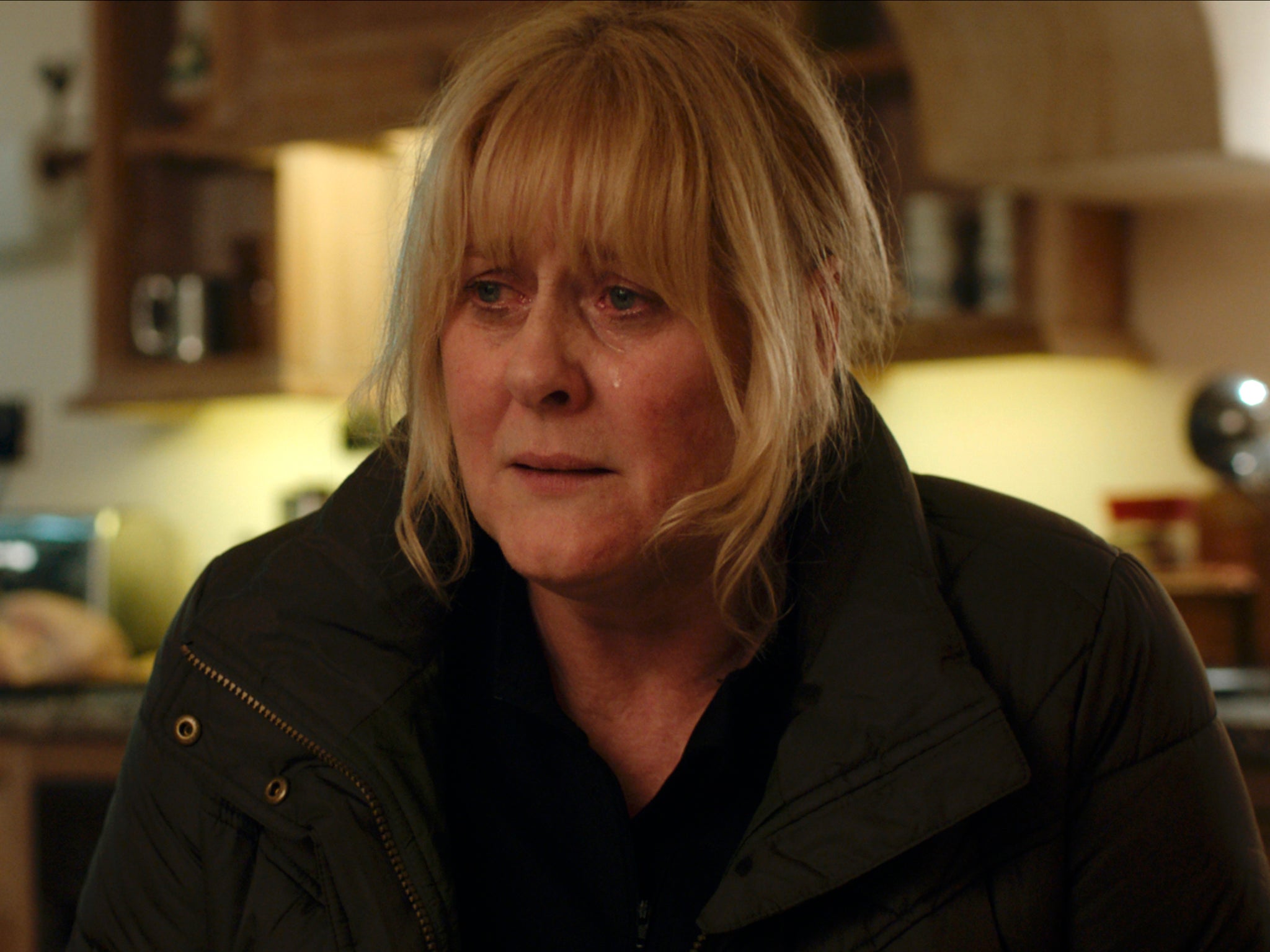
For several days, the question on the lips of social media, and hanging in the air of workplace kitchenettes, has been: how will Happy Valley end? Will Ryan be forced to choose between his dad and his granny, like a Labrador torn between a handful of salami and a fistful of mini cheddars? Will Catherine finally send Tommy off to meet his maker? Or would her planned retirement trip to the Himalayas fail to make it over the Pennines? In the end, the finale unfolded in true Happy Valley fashion: a touch of bathos, a splash of bleak humour, and a great slug of relief. “TLR dead,” comes the simple, understated, text message, which lowers the curtain on a great British saga.
In the seven years that Happy Valley was off-air, between its second outing in 2016 and this latest series, it developed an almost mystical quality – at least in my household. I’d sit through hours of brash yet banal police procedurals, tutting internally when the show failed to inject a vein of black humour into the violent climax, or characters didn’t immediately offer guests a cup of tea. I watched season after season of Line of Duty, desperately hoping that someone would evidence even the vaguest sign of an emotional inner life. But it was in vain: Happy Valley sat there for years as a beautiful blip.
When Mare of Easttown was released on Sky in 2021, I was immediately gripped, and it took a good few episodes for me to realise the reason: it was a rip-off of Happy Valley. From the tough-talking middle-aged detective, raising a grandchild born to a child who’d died by suicide, through to the depiction of an unglamorous working-class community in semi-rural America, the influence was striking. It is testament to the brilliance of Sally Wainwright’s creation that the best detective show to air during Happy Valley’s fallow years was one that borrowed its plot and tone wholesale.
Three seasons – just 18 episodes – led to last night’s finale: the ultimate confrontation between Sarah Lancashire’s Catherine Cawood and James Norton’s Tommy Lee Royce. Back in 2014, the show opened with a man on a playset, doused in petrol, being talked down by Sergeant Cawood – and so too it ends. No cheap puns here about going out “in a blaze of glory”, or commentary on the strange predilection of West Yorkshiremen for self-immolation. It was a brutal, sad, lop-sided showdown. In the end, Tommy poses no threat to Catherine, only to himself – and her ability to live with what follows.
“The quality of mercy,” Shakespeare wrote, “is not strain’d.” But, for Catherine, that quality has always been strained to the extreme. Rather than “droppeth as the gentle rain from heaven”, it’s squeezed from her in hard-fought self-control. “I forgive you,” Tommy tells her. “You forgive me?” she spits back, her Taser still trained on his chest. It is not mercy that keeps her finger still, but duty. A duty to her job, a duty to her grandson, a duty to the murderer at the kitchen table.
And Happy Valley has always been about duty. About life’s grudging, painful duties that are the solid, reliable foundations of the more slippery, poetic condition of love. Viewers longing for Catherine to tell Ryan that she loves him – to make explicit, in words, the story her actions have always told – will be disappointed. But Ryan isn’t. Because he has borne first-person witness to the quality of duty. “He’s just a happy, well-adjusted, pretty flippin’ normal kid,” sobs Catherine, knowing, finally, that she has brought Ryan up and out of the circumstances of his birth.
I cannot go back to watching the horny chipmunk, Line of Duty’s DS Steve Arnott, shagging his way through a harem of witnesses, or Silent Witness’s Nikki Alexander, investigating high-profile serial killers even though she’s supposed to be a bloody pathologist. Being condescended to requires consent, and Happy Valley gives me the confidence to withdraw my acquiescence. But I suspect my feelings don’t matter. With Happy Valley, Wainwright has crafted an artisan police drama, something that, in the identikit world of cop shows, feels like an endangered species.

But Wainwright’s drama has been the most talked about TV show in months, and certainly the only one available on terrestrial TV. It should be evidence enough for the BBC to take more chances on gutsy storytelling, on regional voices, on heroes who neither look nor sound like James Bond. It is a chance to get away from cheap twists and cliffhangers, from implausible shootouts, from casting James Nesbitt. There are many false binaries in the police procedural – shows are either grim or sensationalist, witty or po-faced, propulsive or plodding – that Happy Valley has spent a decade showing up.
In just 18 episodes, Wainwright has rewritten the rules of the genre. Let’s just hope that, as Catherine and co disappear in the rear-view mirror, Happy Valley doesn’t prove just a brief, extraordinary, respite from the raging winds of mediocrity.
‘Happy Valley’ season three is available in full on BBC iPlayer







